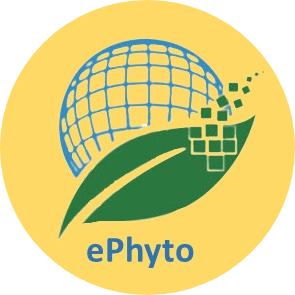National Plant Quarantine Service - NPPO SriLanka
LATEST NPQS NEWS & NOTICES
2022.03.18 –National Symposium on ePhyto
2022. 01.20 – New FAO Representative for Sri Lanka and the Maldives visit NPQS
NPQS Enquiry Point
0112252028 / 29
Mandate
This service has the responsibility of enforcing and implementation of Plant Protection Act No.35 of 1999 and Regulations made thereunder in relation to plant quarantine activities. It also conducts research and development activities in plant quarantine aspects.
National Plant Quarantine Service
The International Plant Protection Convention and Inter government treaty signed by 184 countries aims at protecting the world plant resources from the spread and introduction of pests promoting safe trade. IPPC provides closer alignment with the agreement of the application of Sanitary and Phyto Sanitary (SPS) measures of the World Trade Organization. Contracting parties to the IPPC including Sri Lanka commit to prevent the introduction and spread of plant pests. Each country has established official organization to discharge the function specified by IPPC. This official organization is called as National Plant Protection Organization (NPPO). National Plant Quarantine Service (NPQS) serves as the NPPO of Sri Lanka which safeguards agriculture, natural resources and environment from the negative impact of pests and eventually contribute to enhance food security and improve trade opportunity by working closely with relevant border agencies, regulatory agencies and stakeholders. NPQS is a competent and legally responsible entity for implementing the function of IPPC. Key objectives of the NPQS are to protect nation plant resources through implementing appropriate phytosanitary measures in import, to facilitate market access and safe international trade in plants and plant products through a robust export certification system and to reduce risk to national security and the environment while protecting the plant resources. Core activities of NPQS includes pest surveillance, import regulation, export certification, and regionalization among others. Pest surveillance is an official process of collecting and recording of about each presence or absence of pests. This support phytosanitary programmes and provides information for phytosanitary decision making not only in Sri Lanka but also regionally and globally for facilitation of trade. With the process of pest surveillance, pest free areas in which a specific pest is albescent based on scientific evidences can be identified. Country freedom or area freedom from particular pest is most widely accepted phytosanitary requirements for many high-end markets elsewhere.
Vision
Facilitate the international movement of healthy plants and plant products for the development of national agriculture and related industries
Objectives
• Prevention of introduction, establishment and spread of dangerous alien pests within the country.
• Involvement in domestic pest control programmes
• Development of treatment technologies to eradicate pests of quarantine importance.
• Promotion of export of healthy plants and plant products.
Contact Us
- Address : Canada Friendship Road, Katunayake, Sri Lanka
- Email : npqs@doa.gov.lk
- Telephone : +94 11 225 2028/29
- Fax : +94 11 225 3709
- Open : Mon to Fri - 8.30am to 4.15pm (Closed on weekends & public holidays)









